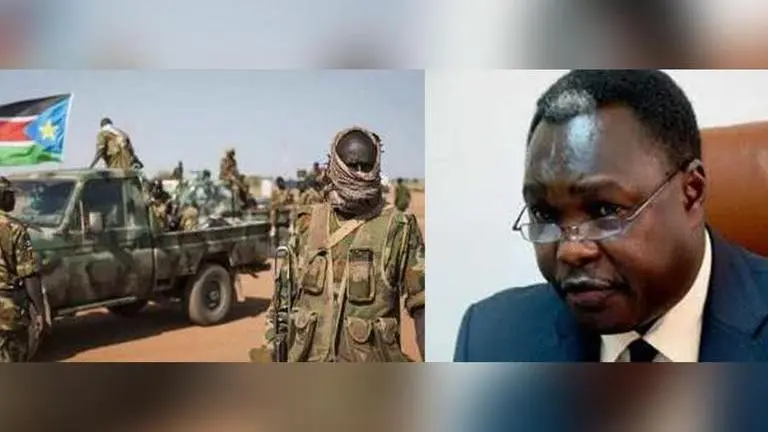Updated 28 September 2021 at 14:54 IST
South Sudan refutes UN report accusing its political elites of plundering public coffers
South Sudan elites siphoned more than USD 73mn since 2018, including transactions worth $39mn in a period of fewer than two months, said UN report.
- World News
- 3 min read

South Sudan government on Monday refused to acknowledge a UN’s Commission on Human Rights (OHCHR) report that accused the country's elites of "diverting staggering amounts of money and other wealth from South Sudan's public coffers". The UN published its observations on 23 September, which were an output of investigations carried out by the Commission over the past two years. However, South Sudan Cabinet Affairs Minister Martin Elia Lomuro refuted the claims by stating that it was a part of an "international campaign against the governance", as per Al-Jazeera.
More than USD73 million was siphoned since 2018. This included transactions worth $39 million in a period of fewer than two months, the UN Commission noted, adding that the aforementioned figure was "just a fraction of the overall amount looted".
The UN report said that the systematic and illicit diversions of the State resources have left the world's newest nation in the pit of impoverished economic, social and cultural conditions. The Conference Room Paper also warned South Sudan that the consequences of "plundering" could "fuel political competition amongst elites and is a key driver of the ongoing conflicts, violations and serious crimes, jeopardising the prospects of sustainable peace". It is to be noted that South Sudan gained its independence in 2011 following a five-year gruesome civil war.
'Flawed and non-transparent payments'
The UN Commission noted that the South Sudanese elites deliberately engaged in a "highly informal system of oil revenue collection, in which the of independent oversight and transparency facilitates and enables the misappropriation of public funds." Similar "flawed and non-transparent" processes were adopted for contract payments and non-oil revenues." However, Commission Chair Yasmin Sooka dubbed the OHCHR findings "merely the tip of the iceberg." The investigations traced the exact data on the corruption, embezzlement and bribery that included "involvement of politicians, government officials, International corporations, military personnel and multinational banks." Sooka even went on to say that the Ministry of Finance, Economic Planning and the National Revenue Authority were part of the "crime."
The Commission also noted how South Sudan poured the diverted funds into fuelling armed conflict. “South Sudan’s damaging conflicts have been significantly enabled and even motivated by the opportunities to control and divert natural resources as well as oil and non-oil revenues," said the Chairperson of Commission on Human Rights in South Sudan, Barney Afako. "Moreover, national authorities and elites have prioritised the financing of military and security apparatuses over investment in public services, infrastructure, and livelihoods. We strongly urge the Government to act swiftly and decisively fully to implement Chapter IV of the Revitalised Peace Agreement, which provides the appropriate basis for ensuring the effective resource, economic, and financial management in South Sudan," he added.
Advertisement
The report identified several individuals allegedly linked to embezzlement and violations of human rights. Additionally, it also highlighted how ceasefire and power-sharing have displayed very few instances of progress between President Salva Kiir Mayardit and his arch-rival-turned-deputy Riek Machar.
(Image: AP/ @RadioMiraya_Twitter)
Published By : Dipaneeta Das
Published On: 28 September 2021 at 14:54 IST
